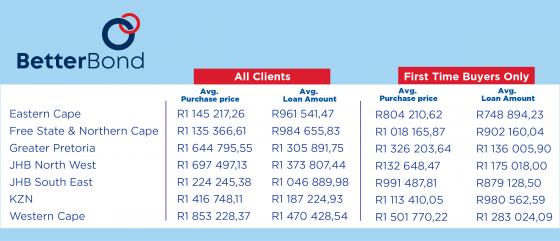RE/MAX NATIONAL HOUSING REPORT Q4 2023

Another Quarter of Muted Growth
The ramifications of high interest rates are still being felt in the fourth quarter of 2023, with fewer transactions occurring and leaving room for only marginal house price appreciation.
According to Lightstone Property data, as at 10 January 2024, the number of transfers (both bonded and unbonded) recorded at the Deeds Office for the period October to December 2023 amounted to 47,630*. When reviewed against the figures from previous RE/MAX National Housing Reports, this amount is down by 17% YoY. When compared against the stats from Q3, the total number of transactions is down by 2%.
Of the 47,630 transfers, a total of 23,263* freehold properties and 13,377* sectional title units were sold countrywide (these figures exclude estates, farms, and land only transfers). Reviewed against previous RE/MAX National Housing Reports, the number of freehold properties registered dropped by 16% YoY and sectional titles dropped by 13% YoY.
“2023 was probably one of the toughest years the property industry has faced within the last 10 years or so. Rising interest rates and high inflation paired against a backdrop of geo-political tensions and economic uncertainty made it a challenging year, and the results of the fourth quarter seem to reflect that,” comments Adrian Goslett, Regional Director and CEO of RE/MAX of Southern Africa.

Muted Growth in House Price Appreciation
Lightstone Property reported in the Residential Property Indices as at end October that the national property inflation rate is at 3.17%, having decreased since the previous month.
In addition to this, according to the Lightstone Property data retrieved on 10 January 2024, the nationwide average price of sectional titles is R1,160,461*. When reviewed against the figures from previous RE/MAX National Housing Reports, this amount is 9% higher YoY. The nationwide average price of freehold homes is R1,496,064* which, when reviewed against the figures from previous RE/MAX National Housing Reports, is 4% up YoY.
“Because property prices are so strongly linked to demand versus supply, the fewer property transactions that take place, the slower house prices are likely to grow. Once demand picks up again, we are likely to see house price appreciation strengthen once more,” Goslett explains.
Home finance trends
BetterBond Interim CEO and Head of Sales, Bradd Bendall, says that “[t]here are some green shoots of positivity for our industry as we look ahead to 2024: Economists and banking partners are projecting stabilising and possibly lower interest rates from the mid-point of the year; we can anticipate moderately better economic growth; and, employment gains are expected to continue. These are all factors that could positively impact our industry by leading to increased demand for property and consequently stronger property prices in the second half of the year. Risk factors include the impact of elections (both locally and internationally as multiple countries go to the polls this year), increased geopolitical tensions, and adverse weather patterns. However, with much of these out of our hands, there is no question that the best we can do is to keep working hard at putting more people into homes, helping more buyers secure their financial future.”

Provincial Property Market Performance
The semigration trend continues to be strong, with the Western Cape claiming four of the top 5 most searched suburbs on remax.co.za during Q4 2023:
- Parklands, Western Cape
- Rondebosch, Western Cape
- Claremont, Western Cape
- Sea Point, Western Cape
- Faerie Glen, Gauteng
This trend is also reflected in the provincial house price inflation stats published by Lightstone Property in the Residential Property Indices as at end October. Property inflation was at 6.18% for the Western Cape, while Gauteng was at just 0.54% and KZN was at 1.62%.
Final thoughts
“Despite the high interest rate and all the other the economic factors that were at play, and while the industry languished at a 25-30% drop in sales, RE/MAX outperformed that by twice as much. The local housing market is resilient and adaptable and there are still opportunities to be had within the real estate sector. Looking ahead to what 2024 might have in store for the South African housing market, I would predict that it might present a spectrum of opportunities and challenges. To seize these opportunities, my advice is to stay informed and flexible regarding your real estate requirements for the upcoming year. Partnering with a reliable real estate professional will also be crucial when it comes to navigating through the evolving landscape that lies ahead,” Goslett concludes.
To find out more about the unique trends that are emerging within your own local real estate market, Goslett suggests setting up a free appointment at your nearest RE/MAX Office.
*Figures according to Lightstone Property. Data captured on 10 January 2024.
*All QoQ & YoY calculations are based on figures in the previous RE/MAX National Housing Reports.
Send to a Friend